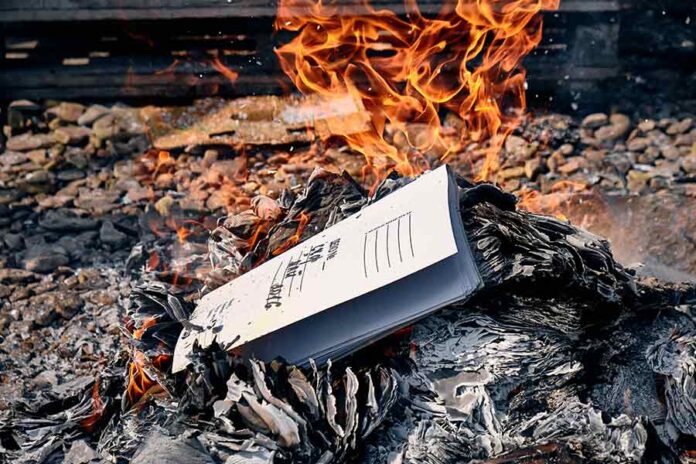Both commercial arbitration cases and their disputed amounts have skyrocketed across China in recent years. Arbitration has now emerged as a key method for dispute resolution and a go-to alternative to traditional litigation, resulting in greater complexity of cases handled by arbitration institutions.
In many of these cases, parties have difficulty in adducing evidence, leaving the arbitration tribunal in charge of investigation and collection of evidence. This, however, is easier said than done.
Evidence out of reach
Evidence directly relates to the basic facts ascertained by the arbitration tribunal, which in turn affects fairness of the outcome. Thus, the importance of the evidence collection system of arbitration tribunals cannot be overstated.
When it comes to evidence collected by the parties themselves, there is little hindrance in the system. However, when the parties are unable to collect evidence and require the arbitration tribunal to do so on their behalf, it often leads to a bumpy ride.
Almost all the rulebooks of arbitration institutions in China authorise the tribunal to collect evidence. For example, article 34 of the Arbitration Rules of the Beijing Arbitration Commission/Beijing International Arbitration Centre provides the right to investigate the facts and collect evidence on its own.
However, unlike civil litigation, arbitration is non-governmental and respects the parties’ autonomy of will, meaning that procedural arrangements made by the tribunal are usually binding only on the parties.
When it comes to investigating and collecting evidence from a third party, the limited binding effect may pose serious challenges. As a result, the case may be prolonged due to lack of key evidence, which compromises efficiency of the proceedings, one of the main reasons for choosing arbitration to begin with.
Valuable precedence
On 1 December 2023, the Decision of the Standing Committee of Shanghai Municipal People’s Congress on Amending the Regulations of Shanghai Municipality on Optimising the Business Environment was implemented in Shanghai, with article 74 providing that “the people’s courts in Shanghai shall establish a working mechanism to support the hearing and issuance of investigation orders for arbitration cases”.
This provision grants arbitration institutions the right to apply to the people’s court for investigation orders, effectively bypassing the difficulties in collecting evidence. Provinces and cities with developed economies and a large number of commercial arbitration cases may, with reference to the Shanghai experience, formulate or amend their own relevant local regulations to explicitly grant arbitration institutions the right to apply for investigation orders.
Article 27 of the UNCITRAL Model Law on International Commercial Arbitration also stipulates: “The arbitral tribunal or a party, with the approval of the arbitral tribunal, may request from a competent court of this state assistance in taking evidence. The court may execute the request within its competence and according to its rules on taking evidence.”
In view of Shanghai’s precedence and ongoing amendments of China’s Arbitration Law, a future provision could state that, “an arbitration institution or the tribunal shall have the right to apply to the people’s courts at any level for investigation orders in respect of evidence to be collected”. In which case, arbitration institutions could adjust their rules accordingly, detail relevant provisions on the collection of evidence by arbitration tribunals, and improve regulations on the application conditions, necessary circumstances and detailed procedures. The dilemma faced by arbitration tribunals in collecting evidence would be fundamentally resolved.
To the relief of arbitrators, paragraph 2 of article 61 of the current amendment to the Arbitration Law now provides that, “an arbitration tribunal may collect evidence on its own initiative as well as, when necessary, request assistance from the people’s court”. This means there is already an assistance system via people’s court in the works. Hopefully, this provision will be retained in the finalised Arbitration Law amendment.
In Germany, a fellow civil law country, article 1050 of its Code of Civil Procedure provides that, “the arbitral tribunal or, with the approval of the arbitral tribunal, a party may request that a court provide assistance in taking evidence or by performing any other judicial acts for which the arbitral tribunal is not authorised. Unless it regards the request to be inadmissible, the court deals with such request in accordance with its procedural rules for the taking of evidence or any other judicial acts. The arbitrators are entitled to participate in the court hearing at which evidence is taken and to ask questions.”
According to these provisions, the arbitral tribunal – or party with approval from the tribunal – may apply to a court for an investigation order, demonstrating the positive stance of Germany on the system of investigation and evidence collection by arbitral tribunals.
Judging from China’s current legislation and amendment, the Arbitration Law is updated at a much slower pace than the Civil Procedure Law. So, referring to the German model, it is also possible to incorporate the application for an investigation order by an arbitration tribunal when revising the Civil Procedure Law.
What now?
Revision of local regulations, the Arbitration Law and Civil Procedure Law will take time and considerable political support. Until then, how can the difficulty of evidence collection be alleviated more immediately?
The author recommends the following measures.
- Strengthen communication and interaction between arbitration institutions, government agencies and various industry organisations, allowing the governments, enterprises and public institutions of various industries to become familiar with arbitration institutions and arbitration procedures, so as to foster respect and co-operation when tribunals issue letters of assistance for investigation;
- Emphasise the confidential nature of arbitration to evidence holders – stressing that evidence collected can only be used between the arbitration tribunal and the parties – in order to dispel any concerns about leakage of information; and
- Arbitration institutions should consider formulating rules on evidence collection, under which the tribunal may allocate the burden of proof, to avoid scenarios where one party cannot obtain evidence controlled by the other.
Wang Xiaoxin is a senior counsel at the Beijing Arbitration Commission/Beijing International Arbitration Centre (BAC/BIAC)
JOIN OUR FORUM
China Business Law Journal welcomes your responses to articles that appear in the Dispute Digest section. In line with our desire to make this section a regular forum of ideas, cases and observations, we also invite you to contribute. Articles should ideally be about 900 English words and 1,500 Chinese characters in length. Please send them to cblj@law.asia. We will publish the best and most topical articles each month.






















